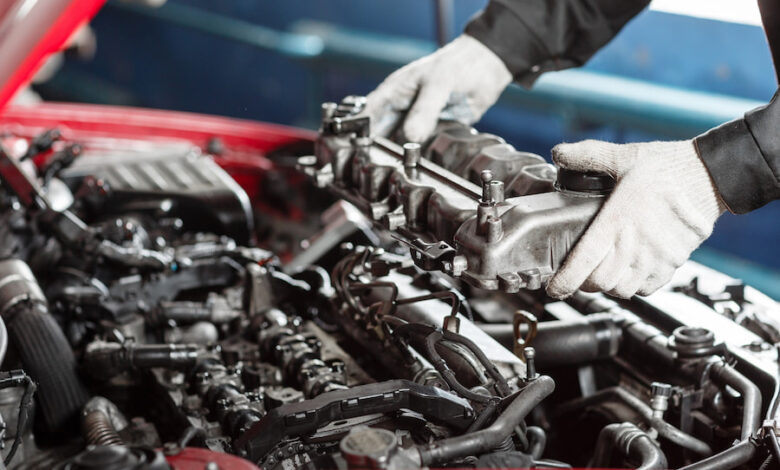6 Most Important Diesel Engine Maintenance Tips

Diesel engine are widely used in various applications, from automobiles to heavy machinery, due to their fuel efficiency and robust performance. However, to ensure their longevity and optimal performance, regular maintenance is crucial. In this article, we will explore the three most important diesel maintenance tips you need to know to keep your engine running smoothly.
Optimal Engine Performance:
For optimal engine performance, regular diesel injector servicing is essential. Neglecting this maintenance task can lead to reduced fuel efficiency, diminished power output, and even potential engine damage. Ensure your vehicle’s longevity and efficiency by scheduling timely servicing to keep the injectors clean and functioning at their best.
What Are The 6 Most Important Diesel Maintenance Tips You Need To Know?
1. Frequent Oil Changes:
One of the greatest important parts of maintaining a diesel engine is performing routine oil changes. Engine oil is essential for keeping moving parts lubricated, lowering friction, and removing heat from the combustion chamber. As contaminants and combustion byproducts accumulate in the oil over time, the engine parts experience greater wear and tear.
Follow these recommendations for oil changes to protect your engine and assure top performance:
a. Refer to the Manufacturer’s Recommendations:
Each diesel engine has specific requirements regarding the type and grade of oil to be used and the recommended oil change interval. Always consult the owner’s manual to determine the right oil and change schedule for your engine.
b. Use High-quality Oil:
Choosing the right engine oil is essential. High-quality oils with the correct viscosity and additives will provide better protection against wear, improve fuel efficiency, and extend the engine’s life.
c. Periodically Check the Oil Levels:
Keep the oil levels within the prescribed range by periodically checking the levels. Low quantities of oil might result in insufficient lubrication and possible engine damage.
d. Replace the Oil Filter:
The oil filter should always be replaced together with the oil. The filter is in charge of eliminating impurities in the oil, therefore a blocked filter can lower performance and hasten the wear of the engine.
2. Maintain a Clean Fuel System:
Diesel engine rely on a precise mixture of fuel and air for efficient combustion. Any impurities or contaminants in the fuel system can adversely affect engine performance and fuel economy. To maintain a clean fuel system, follow these maintenance tips:
a. Use Clean, Excellent Diesel Fuel From Reliable Suppliers
Use high-quality fuel. Injector clogging decreased fuel economy, and even engine knocking are all effects of contaminated fuel. Diesel engine feature primary and secondary filters for fuel to remove pollutants before they enter the engine.
b. Replace fuel filters regularly:
To avoid fuel system problems, replace these filters as often as the manufacturer recommends.
c. Add fuel additives:
Using diesel fuel additives, especially those designed to clean the fuel system, can help prevent carbon deposits and injector fouling. Consult your engine’s manufacturer or a qualified mechanic to ensure the additives are compatible with your engine.
d. Bleed the Fuel System Properly:
If air enters the fuel system, it can disrupt the combustion process and lead to rough running or stalling. Properly bleed the fuel system whenever you change the fuel filters or run out of fuel.
3. Maintain the Conditioning System:
Diesel engine produce a lot of heat when they are running, so it’s important to have a functioning cooling system to avoid overheating and eventual engine damage. Regularly examine the coolant level and make sure that the radiator, water pump, and hoses—all parts of the cooling system—are in good shape.
To keep the system functioning effectively, flush and replenish the coolant as directed by the manufacturer. Engine overheating from improper cooling system care can result in serious damage and expensive repairs.
4. Inspection and Replacement of Air Filters:
Air filters keep pollutants like dirt, dust, and other particles out of the combustion chambers of engines. These filters eventually clog up, which has an impact on the engine’s efficiency and fuel economy. To ensure that the engine breaths clean air, which is necessary for optimal burning and lower emissions, check and change air filters regularly following the manufacturer’s instructions.
5. Battery and Electrical System:
The battery and electrical system are critical for starting the diesel engine and powering essential components. Regularly inspect the battery for signs of corrosion, check the battery terminals for tight connections, and ensure the charging system is functioning correctly. Clean any corrosion on the battery terminals using a battery terminal cleaner and apply a protective coating to prevent future build-up.
Electrical components, such as the alternator, starter motor, and wiring, should also be inspected for signs of wear or damage. A well-maintained electrical system ensures reliable engine starts and minimizes the risk of breakdowns.

6. Regular Maintenance by Professional Technicians:
Owners and operators can do some maintenance jobs, but for thorough service and difficult repairs, you must entrust your diesel engine maintenance to certified technicians. Your diesel engine will stay in top shape because certified experts have the skills and knowledge to spot possible problems before they develop into serious ones.
The most recent suggestions from manufacturers, technical announcements, and software upgrades that can improve the performance and fuel efficiency of your engine are also kept up to date with routine maintenance visits.
Conclusion:
The secret to maintaining the longevity and ideal efficiency of diesel engine is routine maintenance. You can keep your engine operating smoothly for many years by adhering to these three crucial diesel maintenance recommendations: routine oil changes, keeping an environmentally friendly fuel system, and adequate cooling system upkeep. To keep your diesel engine running at its best, always adhere to the manufacturer’s instructions and get professional assistance as needed.
Also, read this: How A1 Exhaust Helps to Enhance Driving Experience?




